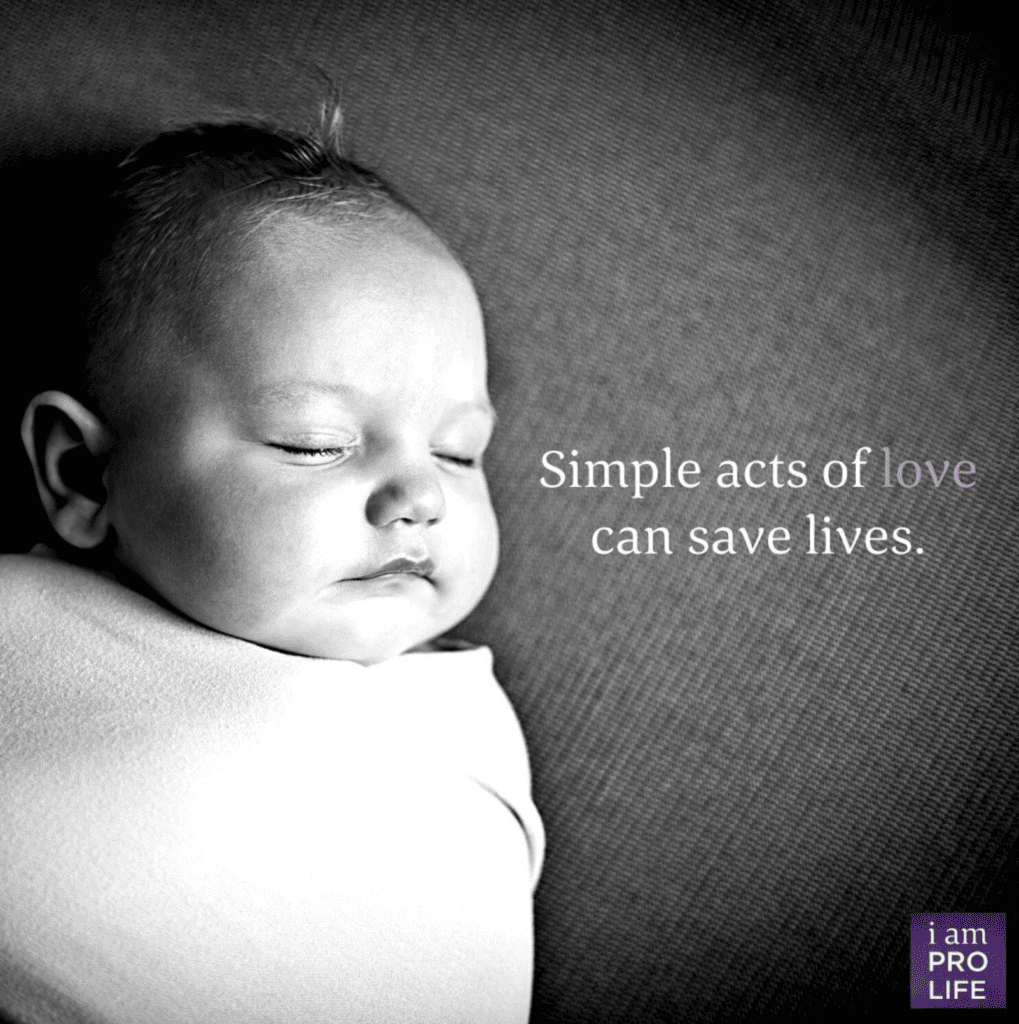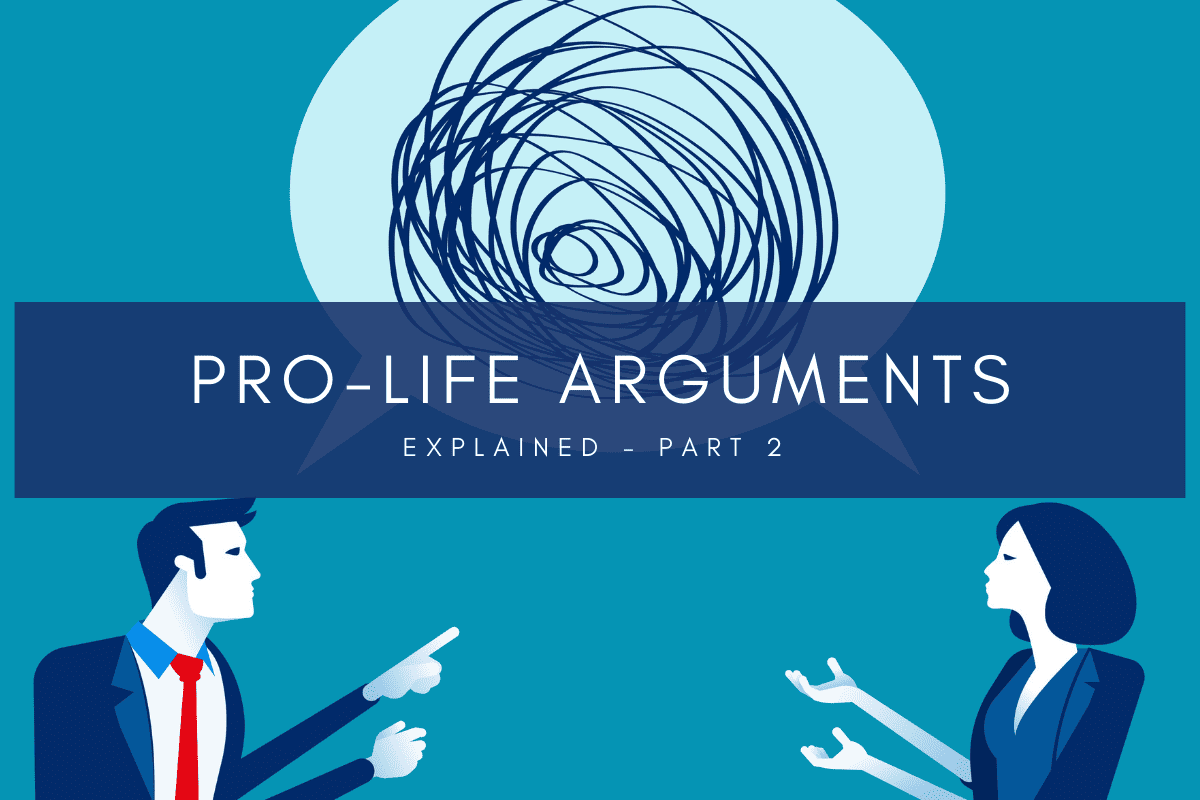In Part 1, we established a foundation for pro-life arguments: We Are Pro-Life and Pro-Love. Our faith determines how we engage with pro-choice advocates, not just with what we say, but also with how we listen and speak. We stand against abortion while treating people with love and respect. We must exemplify our faith, even when it doesn’t inform our pro-life arguments. In fact, given our current legal climate, the most compelling pro-life arguments don’t invoke religion at all.
Arguments Against Abortion: Why Law Matters
Pro-choice advocates often ground their arguments in women’s “constitutional right to abortion.” In this view, “my body, my choice” is both personal belief and established law. After all, women’s right to abortion had been repeatedly affirmed by the Supreme Court, until it turned the issue back to the states in the Dobbs v. Jackson decision.
Many pro-lifers disagree with pro-choice legal precedents but can’t explain exactly why. The “why” requires a deeper dive. In Part 2 of Pro-life Arguments Explained, we can accomplish this in a matter of minutes!

Don’t Fear the Legal Details
Incorporating the basic legal issues and relevant history makes our stance more understandable. So, before we dive in, it’s helpful to know a few fundamentals.
Pro-Life Arguments Explained – Part 1 examines and establishes two critical truths: life begins at conception, and every human life has innate value.
Pro-life reasoning has solid footing when we start with proven science. After all, 96% of biologists agree that life begins at conception. When we apply this truth to human morality, it’s evident that a just society must value every human life. This common morality forms the bedrock of our legal rights.
Our Constitutional Rights as People Must Apply Equally to Preborn Persons
Currently, legal protections of pre-natal humans are inconsistent at best. For example, consider fetal homicide laws. Nationwide, these laws directly clash with a women’s “right” to abortion in some states. Why should that matter? Fetal homicide is illegal in 38 states. The law applies upon conception in 29 of these states.
Abortion advocates discount this, chalking it up to politics. However, such laws weren’t just created by conservative legislatures.
How do we counter that? One word: California. The State Penal Code defines murder as “the unlawful killing of a human being or a fetus with malice or forethought.” But, abortion is legal there. Furthermore, abortion costs are covered for most Californians by state-funded or private insurance (per state requirements).
Sadly, while most of our country criminalizes fetal homicide, many states still sanction abortions.
How Did We Get Here?
The abortion debate reached a fever pitch in 2022. The SCOTUS ruling on Dobbs v. Jackson Women’s Health was transformative to say the least. For this reason, effective pro-life arguments must address the history relied upon by abortion advocates. Roe v. Wade (1973) and Planned Parenthood v. Casey (1992) are considered pro-choice landmarks that were eventually overturned in the Dobbs decision.
Understanding Roe and Casey: Abortion on a Legal, Moral Basis
- Both rulings hinged on our constitutional “right to privacy.”
- “Privacy” is not an explicit right in the Constitution. It’s one of the rights extrapolated from our “right to liberty” in the Fifth and Fourteenth Amendments.
- The Fifth Amendment pertains to federal governance. It specifies: “No person shall…be deprived of life, liberty, or property, without due process of law…”.
- The Fourteenth Amendment was one of three post-Civil War Amendments. It declares no state can deny people these rights (life, liberty, property, due process). Furthermore, “No state shall…deny to any person within its jurisdiction the equal protection of the laws.”
- Note that these protections apply to all persons in the U.S., not just citizens.
- The “personhood” of pre-born humans is central to the abortion debate.
Roe v. Wade
Roe v. Wade placed trimester-based limitations on abortion as a way to balance a women’s right to privacy/liberty against the government’s interests. In this case, the right to abortion was declared “fundamental.” This meant that any future judicial review would require a firm overview.
Planned Parenthood v. Casey
Planned Parenthood v. Casey upheld and broadened abortion rights. In response, the trimester framework shifted to a “pre-viability” standard (in our legal system, a fetus is “viable” when it can survive outside the womb, supported by up-to-date medicine). Likewise, Casey also replaced “strict scrutiny” judicial review with a new “undue burden” standard. Any law placing “a substantial obstacle in the path of a woman seeking an abortion of a nonviable fetus” would be considered unconstitutional.
Related article: Should Abortion Be Legal?
Biological and Moral Realities Shed Light on the Flawed Reasoning of Roe and Casey
- Science proves life begins at conception as a new human being with a unique genetic code. All human beings are people, and vice-versa.
- Any other standard for “personhood” is untenable:
- Viability outside the womb would depend on location, available medical care, insurance coverage and myriad other factors.
- A fetus does depend on the mother for survival. But, this cannot be a disqualifier. If personhood requires independent existence, most children fall below the line.
- Relying on physical or mental capabilities (e.g., heartbeat, cognition, etc.) is indefensible. What about someone with a defect that requires medical intervention to maintain her heartbeat? Or, a man with Alzheimer’s who barely has any cognitive function left?
Unavoidable Facts and Logic
- A human being is a person, regardless of their biological development, decline or overall health.
- Life is our most fundamental human right.
- Without the right to life, no other rights exist.
- The Constitution explicitly protects every person’s right to life.
- A woman’s secondary right to liberty cannot overrule an unborn person’s fundamental right to life.
Yet, pro-choice advocates beat the drum of “longstanding legal precedents” before Roe and Casey were overturned. It’s insisted that current rulings must align with past decisions. However, objectively wrong legal precedents could have a long lineage. That doesn’t make them legitimate.
Past Precedents Recognized as Past Mistakes
- In 1896, Plessy v. Ferguson concluded with a 7-to-1 SCOTUS ruling. The ruling sanctioned “separate but equal” public facilities. Segregation laws proliferated nationwide.
- Plessy’s majority opinion noted the precedent of segregated schools, the most common instance of public segregation. Schools throughout the country evidenced wide acceptance of “separate but equal” doctrine.
- The Court further cited a specific example: “separate schools for colored children in the District of Columbia.” These schools first appeared in D.C. around 1807.
- Brown v. Board of Education changed the landscape in 1954. The Court unanimously declared segregated schools were unconstitutional.
- In 1964, the Civil Rights Act finally outlawed segregated public facilities.
The 1964 Civil Rights Act effectively overturned roughly 157 years of established precedent.
Legal precedent is not sacred. Human life is.
Yes, we have Christian beliefs. But, when needed, we can set aside biblical support and still share compelling pro-life arguments with just about anyone. After all, we speak on behalf of the most vulnerable among us. And they can’t speak for themselves.
By God’s grace, speaking truth can do more than change opinions—it can save lives.




















